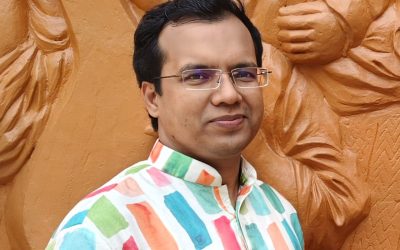William AS Ouderland: A friend in need
When it comes to talk about the history of our War of Liberation, many of us do not know about the foreigners who helped us achieve the freedom by raising their hands of friendship. William Abraham Simon Ouderland (1917-2001) popularly known as W. AS Ouderland is one of the foreign friends who not only helped the freedom fighters but also took part in the battle directly against Pakistan in 1971. He was the only foreigner who was honoured with the fourth highest state insignia of ‘BirProtik’ by the government of Bangladesh for his gallantry and heroic contribution to the liberation war of Bangladesh.There is a road named after Ouderland in front of the Australian High Commission at Gulshan-2 in Dhaka. The true friend of Bangladesh died on this day in 2001. Let’s pay tribute to Ouderland on his 20thdeath anniversary by remembering his heroic contribution to our independence.
Ouderland, a Dutch-Australian, was born on 6 December 1917in Amsterdam, Netherland. He came from a poor Dutch family of shoe-shiners. He started his career as a shoe-shiner in the Bata Shoe Company in 1934. After two years he left the job for joining National Service (1936) and had been a Sergeant in the Royal Signal Corps till 1940 AD. He left the service in 1940, and participated in the Second World War (1939-1945) as a guerilla commando of the Dutch army.His time in Dutch National Service proved to be fruitful because as a guerrilla sergeant Ouderland carried out covert attacks on Nazi forces and after getting caught, he incredibly escaped from prison and started spying.
Just for service purpose Ouderland first came to the then ‘Dacca’ in late 1970 with an assignment as the Production Manager of Bata Shoe Company. Within a few months he was promoted to the post of ExecutiveDirector. With thebeginning of Bangladesh liberation war, the ex-soldier Ouderland could have slipped out of the war-torn East Pakistan to a safe country. But he couldnot resist himself from taking action against the atrocities and injustices of the Pakistani forces. He chose to stay here because of the “love and affection” he “felt for the Bengalee people”, as he once wrote in a letter to a friend.
On 25 March 1971 late night, the Pakistan Occupation Army launched Operation Searchlight against the freedom loving innocent Bengalee people and started genocide by killing them. Father of the Nation Bangabandhu Sheikh Mujibur Rahman in the early morning of 26 March 1971 declared the independence of Bangladesh just before get arrested by the Pakistan Occupation Army.When people of all walks of life rose to Bangabandhu’s clarion call and joined the war of liberation, that time Ouderland played a great role by collecting photographs on the incidence of barbarism, brutality and genocide by the occupation army, and sending them to the world news media.Thus he helped creating public opinion in favour of the freedom fighters of the Liberation War. On this point he wrote, ‘I recollected and resumed in myself the experiences of my youth in Europe, and I felt that I should get the world informed of what was happening in Bangladesh’. At the same time he engaged himself in playing covert role by penetrating top ranks of the Pakistan Army and intelligence and supplied his intelligence to the freedom fighters.
As a foreigner he had the unhindered access to Pak-army and thereby an opportunity to move in the army headquarters often attending meetings of the army officers in the cantonment. He used to secretly passon to Col (retd) Osmani, commander-in-chief of MuktiBahini, and other senior Bangladeshi officials. He had got a “curfew pass” too to move around the city during the restricted times. He used Australian flag on his car for more protection .Ouderland helped the freedom fighters in every possible way he could by supplying provisions and financial support.
He was good at guerilla warfare as he took part in the Second World War as a guerilla commando. Ouderland wrote to his friend Anwar Faridi more than two decades later after 1971 war “when events of March 1971 started with Tanks and Pakistani forces rolling in to Dhaka, I was re-living my experience of my younger days in Europe.” Being an active member of a guerilla branch of the freedom fighters of Sector-2, he provided training to the freedom fighters in guerilla warfare at different secret camps in Tongi. Sometimes he used the Bata Shoe Factory premises as training center for imparting trainings. He even directed his company doctor to give treatments to the wounded freedom fighters.
 With his experience as a successful spy for the Dutch Underground Resistance Movement in the later parts of World War II, he formed an effective covert team with a handful of Bata staff. Back to the battlegrounds, in the later parts of 1971, Ouderland himself orchestrated a number of guerrilla attacks on Pak army carried out by freedom fighters in sectors 1 and 2 with the help of his secret team. He hid weapons in the rooftop water tank, regularly sent shoes, blankets and medicine to freedom fighters. He had a pistol that he gave to a Mukti Bahini member of sector 2.
With his experience as a successful spy for the Dutch Underground Resistance Movement in the later parts of World War II, he formed an effective covert team with a handful of Bata staff. Back to the battlegrounds, in the later parts of 1971, Ouderland himself orchestrated a number of guerrilla attacks on Pak army carried out by freedom fighters in sectors 1 and 2 with the help of his secret team. He hid weapons in the rooftop water tank, regularly sent shoes, blankets and medicine to freedom fighters. He had a pistol that he gave to a Mukti Bahini member of sector 2.
Ouderland continued to block the advance of the Pakistani forces by blowing up the bridges and culverts one after the other on the Tongi-Bhairab railway line with the freedom fighters of Sector-2. At the same time, under his leadership, the freedom fighters launched guerrilla attacks on the Pak army camps and strategically important government offices around Dhaka. Sometimes he himself fought in the frontlines.
William AS Ouderland continued his service in the Bata Shoe Company in Dhaka with his elevated position as Managing Director till 1978 when he retired, and returned back to Australia to settle there for the rest of his life. He died on 18 May 2001 in a hospital at Perth in West Australia leaving behind him his wife Maria and his only daughter. In his last days he was often found telling his wife and daughter, ‘Bangladesh mon amor (Bangladesh is our love). Maintain this flow of emotion for the generation to come’. Bangladesh invited him twice to honour in 1992 and 1998. He could not make it because of poor health. But he donated the award money he got in 1998 to the Bangladesh Freedom Fighters Welfare Trust.
Though Ouderland was not a Bangalee, he loved Bangladesh as any other freedom loving man of the country. I wonder how inhuman they were who being the people of this land plotted against the freedom of Bangladesh forming auxiliary forces of Pakistan Occupation Army, e.g., Razakars, Al-Badr, Al-Shams, Al-Mujaheed etc participated in committing widespread and systematic crimes including crimes against humanity, genocide and war crimes in the country! On the other hand a true friend like Ouderland could not betray his own conscience and risked life for the independence of Bangladesh. It is shocking to see that even after 50 years of independence many perpetrators in Bangladesh are still trying to place the country in turmoil by denying the spirit of the war of liberation.
The writer is an Assistant Secretary, Bangladesh University Grants Commission (UGC)


0 Comments